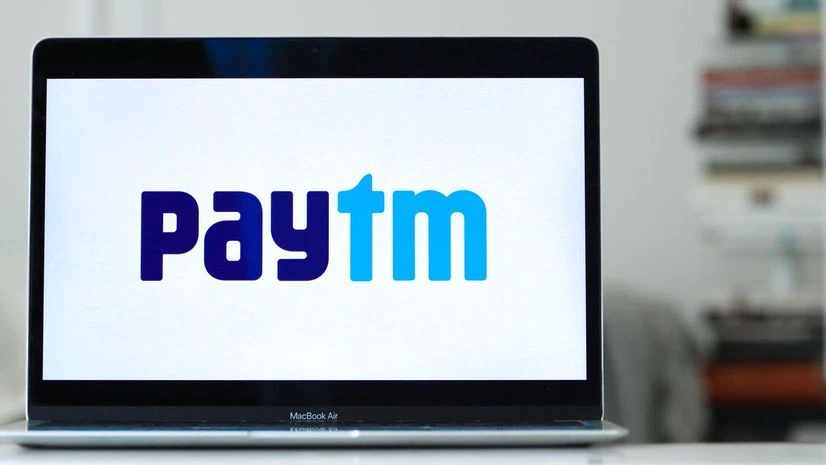Shares of One97 Communications, which owns and operates fintech platform Paytm, have continued their upward trajectory, and rallied 6 per cent to Rs 897.90 on the BSE in Friday’s intra-day trade amid heavy volumes. The stock of the fintech company is quoting higher for the fifth straight day, having surged 19 per cent during the period.
The stock price of the company is trading at its highest level since November 2023; it is inching towards its 52-week high level of Rs 926.70 that it touched on November 23, 2023. The stock had hit an all-time high of Rs 1,961.05 on November 18, 2021. Meanwhile, the market price of Paytm has bounced back 190 per cent from its 52-week low level of Rs 310 hit on May 9, 2024.
At 12:00 PM, Paytm was trading 5 per cent higher at Rs 885.80, as compared to 0.97 per cent rise in the BSE Sensex. The average trading volumes on the counter jumped 1.5 times with a combined 14.16 million shares having changed hands on the NSE and BSE.
One 97 Communications provides payment solutions, hotel booking, top-ups, data processing, gaming, mobile content, and bill payment services globally. Earlier this week, Paytm had launched UPI International, allowing its users to make Unified Payments Interface (UPI) transactions at select global locations. This feature enables users to make cashless payments using the Paytm app in the UAE, France, Mauritius, Singapore, Bhutan and Nepal.
Paytm’s sharp outperformance recently has fuelled expectations of improvement in the operational performance of the company.
Also Read
In the second quarter of the financial year 2024-25 (Q2FY25), Paytm achieved 11 per cent quarter-on-quarter (QoQ) revenue growth, due to a 5 per cent QoQ increase in Gross Merchandise Value (GMV), better realisation from devices and 34 per cent QoQ increase in revenues from financial services.
The company’s net payments margin increased 21 per cent QoQ to Rs 465 crore, largely on account of improvement in payment processing margin, better device realisation and growth in GMV. Financial Services revenue was Rs 376 crore, up 34 per cent QoQ, on account of an increase in collection bonus in merchant loans due to better asset quality trends, and higher share of merchant loans.
With growth in revenue, improvement in contribution margin and reduction in indirect costs, the company's earnings before interest, tax, depreciation, and amortisation (Ebitda) loss has narrowed by Rs 388 crore QoQ to Rs 404 crore. EBITDA loss before ESOPs narrowed by Rs 359 crore QoQ to Rs 186 crore. The management said it remains committed to reaching Ebitda before ESOP profitability by Q4FY25.
Analysts at Dolat Capital said they have observed a number of developments that suggest reduction of pain points and normalising prospects across business segments based on their checks suggesting that the company has completed the migration Paytm handles. Apart from that, the company has also cleared the regulatory overhang from FDI clearance for Payment Aggregator (PA) license, while UPI consumer data indicates stability in market share for the company. An expansion in partner network in financial distribution business also adds further comfort, indicating that Paytm seems all set to achieve its guided path of turning adjusted EBITDA break-even by Q4FY25 (ex of UPI incentive), thereby implying a positive cashflow.
Paytm remains in a bright spot of continued rapid growth in digital payments in India. Analysts at the brokerage firm believe that the company has the potential to grow its revenues multi-fold over the next decade and is expected to deliver steadily growing profits FY26E onwards. “We believe that DCF valuation is an ideal tool to value the real long-term potential of this business,” the brokerage firm said, while maintaining its ‘Buy’ rating with discounted cash flow (DCF)-based target price of Rs 920 (implies 4.6/3.6x on FY26/FY27E EV/Sales).
Analysts at Emkay Global Financial Services believe Paytm’s cost optimisation measures and gradual business turnaround will put it on an early path to profitability (EBITDA/PAT positive by FY26E/27E). The company has finally received NPCI approval for adding new UPI users, thus paving the way for re-accelerating its dwindling user-base and further signaling easing of regulatory stance, the brokerage firm said in the company’s Q2 results update.
The company's management expects new merchant onboarding and the GMV growth to pick up in Q3 due to the festive season, while it believes that once it receives the payments aggregator license, it would pave the way for onboarding new, large online merchants. On reviving its wallet business, the management clarified that the wallet business, with the Paytm Payment bank business, remains under suspension and that it would wait for clarity from the regulator before taking a call, analysts said.
According to analysts at Geojit Financial Services, Paytm delivered robust operational metrics in Q2FY25, which provided a sustainable outlook for the business. Cross-selling financial services opportunities in the merchant business would provide long-term support, they believe. The new partnership in the payment business, prudent marketing spending plan, and a focus on reactivating customer base further aid its topline they added. Margins are expected to improve with a further reduction in employee costs and continued automation, the brokerage firm added.

)